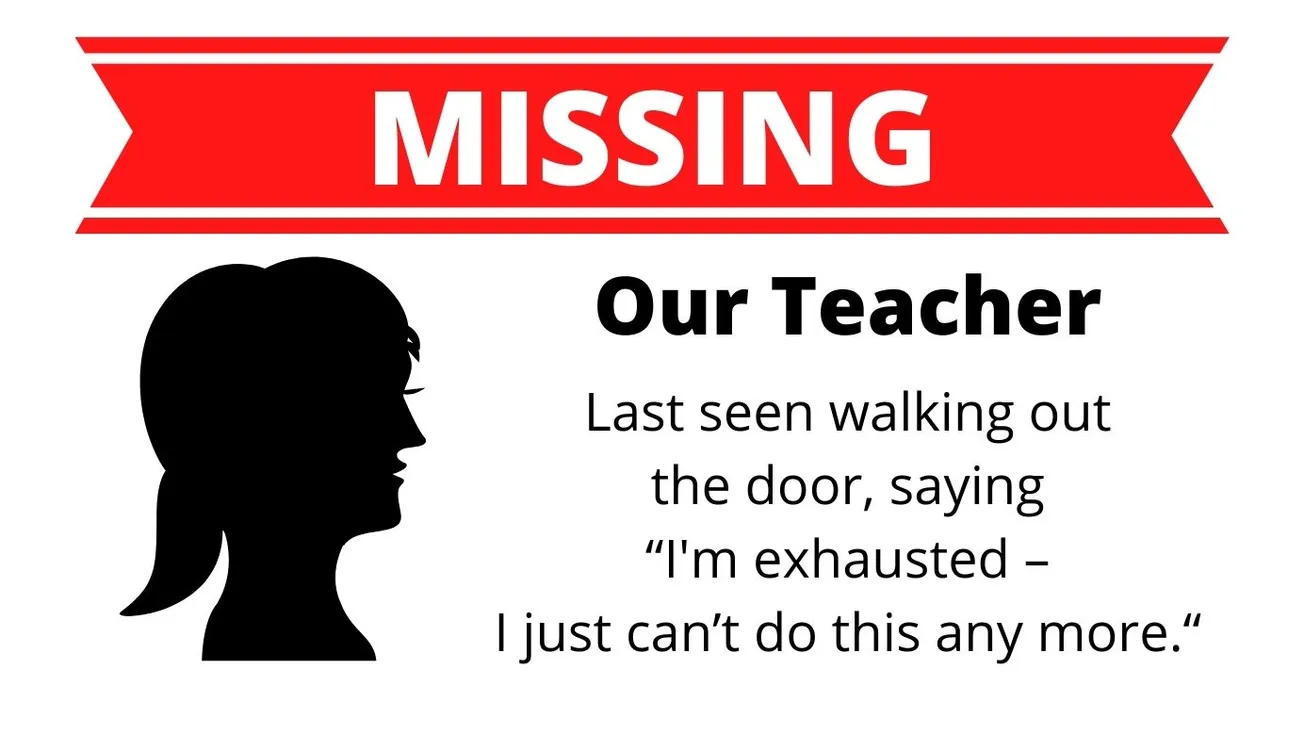I confess that I have a bad habit of looking at Facebook when I get up in the morning. As a retired educator, I subscribe to several teacher sites, where I can keep current on matters of concern to educators.
Over the past couple of years, I’ve noticed a disturbing trend: there seems to be an alarming increase in teacher burn-out. While teachers have always been overworked and underpaid, this is different. Fall-out from the pandemic, along with lack of public support and increasing workplace demands, are leading to unprecedented resignations.
Teacher exoduses are happening all over the country. A survey by the Rand Corporation found that one-quarter of teachers said they were considering another profession.
- In the state of Florida, for example, teacher vacancies this year increased by more than 67% compared with August 2020.
- In Fort Worth, Texas, the school district posted 314 vacancies this school year, compared with 71 in 2019-20.
- A school district in Tulsa, Oklahoma was recently forced to eliminate the 6th grade altogether at one of their elementary schools because they couldn’t find teachers.
- In Kentucky, we have been experiencing increasing vacancies every year, and fewer individuals are entering the pipeline (4811 in 2016-17, compared to 11,208 in 2012).
Yet thus far, Kentucky has managed to avoid a real crisis – which is precisely why I was struck by this post on a popular Kentucky teacher FB site: “There is going to be a reckoning in education in June.”
Within the first 12 hours, there were over 100 comments. Here is a sampling: “We are losing one of our rock star teachers who is moving into the business world. Several others are looking for options.” “Honestly, a lot of us are barely hanging on. . .” “It’s a very real issue; there’s no doubt it’s going to happen.” “I am done in December. I just couldn’t make it to the end.” And then there’s this: “Just look at what has been pre-filed on the state level. It’s terrifying.”
Given the circumstances, one would think that the Kentucky legislature would be proposing legislation that would help to ease the burdens of teachers and attract young people into the profession. Perhaps higher salaries? Smaller class sizes?
Guess again. Instead, they have introduced bills that would penalize teachers for teaching any content that might make students feel “discomfort.”
This vaguely-worded legislation would place additional stress on a profession that is already experiencing record-level burn-out. Teachers are asking questions like these: Could I be fired for teaching about slavery? Would parents object if I read [insert the title of any book with diverse protagonists] with my kids? Can I even have a conversation about Martin Luther King? What about the Holocaust, or the Trail of Tears, or the Civil Rights Movement?
We are already seeing the ramifications of similar legislation that has been passed in other states. In a district in Tennessee, an anti-CRT activist group scrutinized books designed for second graders and sent a letter to the Tennessee Department of Education. Among the objectionable books were Martin Luther King Jr. and the March on Washington, and The Story of Ruby Bridges. In Oklahoma, one prominent district has started banning books relating to race. Included on the list are To Kill a Mockingbird and Narrative of the Life of Frederick Douglass. In Southlake Texas, a district that made national news because teachers were told to teach “alternative perspectives” on the Holocaust, an elementary teacher responded: “Teachers are literally afraid that we’re going to be punished for having books in our classes.”
With looming teacher shortages and disgruntled educators, Kentucky can ill afford to pass legislation that would add to their stress. I argue that we must rethink this ill-conceived anti-CRT legislation, or we may find ourselves with critically understaffed schools. We are already perilously close.
--30--
Dr. Rebecca Powell is a former elementary school teacher and Professor of Education at Georgetown College.







